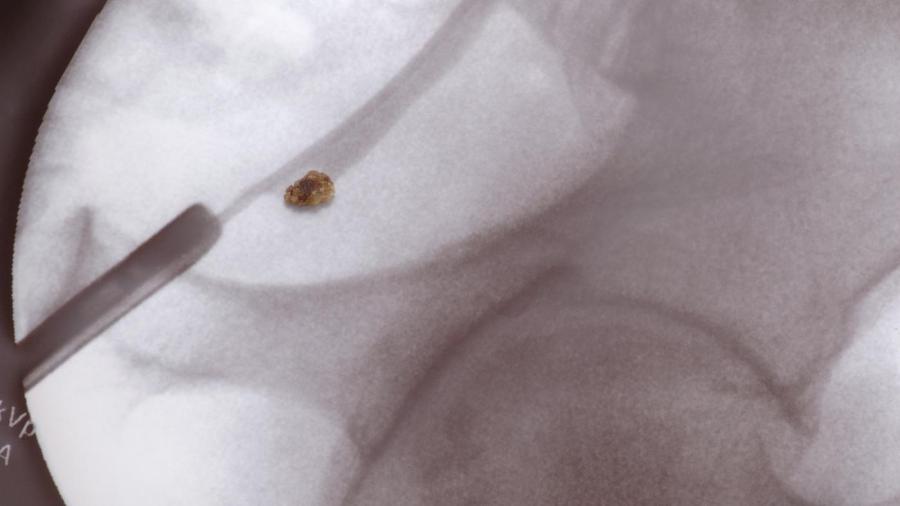What Causes Kidney Stones?

According to Mayo Clinic, there is no single cause of kidney stones; however, there are several factors that increase the risk of their development. These include a diet high in sodium, not drinking enough water, excess calcium oxalate in the blood, too high a concentration of uric acid, certain hereditary disorders, urinary tract infections and a family history of kidney stones.
According to Mayo Clinic, kidney stones form when one’s urine contains large amounts of substances likely to form crystals in the kidneys. These substances are uric acid, calcium and oxalate. Too much sodium increases the amount of calcium one’s kidneys must filter, raising the chance of stones forming. Also, not drinking enough water causes uric acid crystals to build up in the kidneys. Certain foods contain oxalate, such as nuts and chocolate. The kidneys also produce oxalate, and a excessive amount can lead to kidney stones.
There are several risk factors that make kidney stones more likely to occur, including obesity, gastric surgery, dehydration, family history and diets high in sodium, states Mayo Clinic. In addition, once a person has had a kidney stone, they are more likely to get another. Regardless of the cause, different types of kidney stones cause many of the same symptoms, which can include pain on urination, discolored urine, nausea, severe pain in the back or a persistent need to urinate. Other possible symptoms include foul-smelling urine, nausea, vomiting or cloudy urine.
Treatment depends on the size of the kidney stones and the severity of the symptoms they cause, says Mayo Clinic. With mild kidney stones, plenty of water, pain relievers and special medications to relax the ureter may be all that is needed to be able to pass the stone. For larger stones that cause more severe symptoms, sound waves may be used to break up the stone to allow it to pass, or surgery may be required to remove it.





